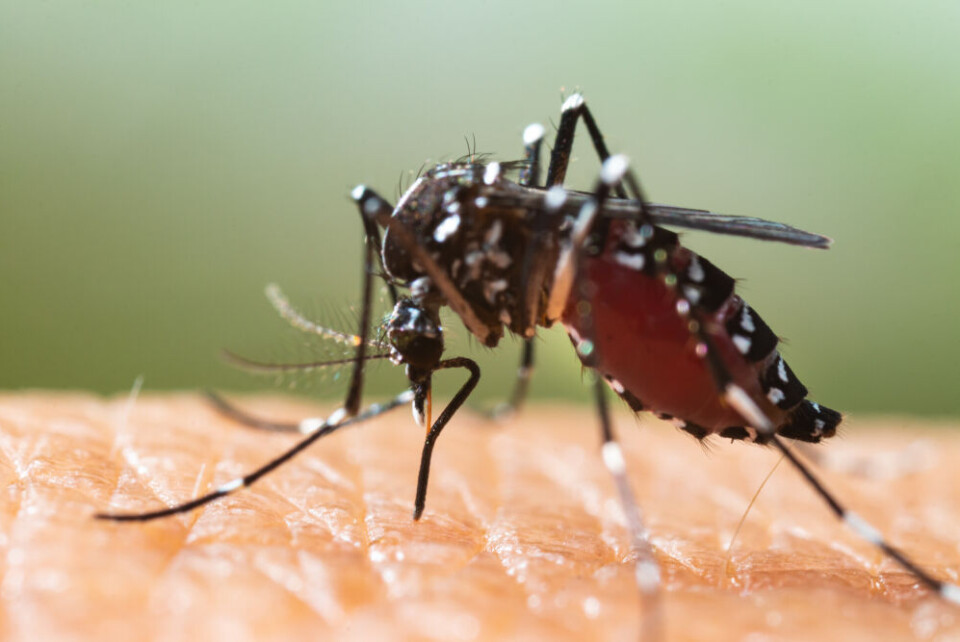-
Festivals, holidays and places to visit in France in April 2025
Including a gladiator battle in a Roman arena, an international garden festival and the Paris marathon
-
Many Société Générale customers to be charged additional fees from April
There is some good news for international banking and instant transfers, however
-
Why gas prices in France are rising in April - and by how much
It comes after six consecutive monthly rises. Try these tips to reduce your bills
More cases of mosquito-borne dengue and West Nile virus in France
Mosquito eradication operations are now being carried out in a bid to stop domestic transmissions of the diseases

More ‘native’ cases of the mosquito-borne West Nile virus have been reported in the south of France, while dengue fever has been detected in Paris, health agencies have warned.
Six people have been diagnosed with West Nile virus in the south of the country since the start of the summer, the regional health agency l’Agence Régionale de Santé Provence-Alpes-Côte d’Azur (ARS PACA) said in a statement on August 29.
The patients - two in Bouches-du-Rhône, another in Var, and three in Alpes-Maritimes - were infected in France, the ARS noted. This means that they had not travelled to a country or international region typically known for the diseases.
Two people who developed the disease in Antibes (Alpes-Maritimes), “are in a geographical area close to where the disease is suspected to be actively circulating”, it said.
ARS PACA is now conducting an inquiry with public health officials to identify where the mosquitoes are widespread, in a bid to stop the disease from spreading in France.
Mosquito treatment operations have been carried out in the region this summer, newspaper Le Figaro has reported, and a targeted campaign has been launched to increase awareness among residents of how to protect themselves from mosquito bites, the symptoms to be alert to, and when to visit a doctor.
West Nile disease is transmitted by mosquitoes, which are infected after interactions with infected birds. About one in five infected people develop a fever and other symptoms, including a severe headache, gland inflammation, a rash, and confusion.
About one out of 150 infected people develop a serious, sometimes fatal illness, states the US Center for Disease Control and Prevention.
Symptoms usually appear two to six days after the patient was infected, but occasionally can take up to 14 days to appear.
Read more: First case of mosquito-spread virus identified in south-west France
Dengue in Paris
In the meantime, in Paris and the surrounding Ile-de-France region, 138 “probable or confirmed” cases of dengue fever have been detected, reported French news channel BFMTV yesterday (Wednesday, August 30).
The cases are imported, meaning the patient became infected somewhere else and not in Paris. Similarly, one case of chikungunya and Zika were also detected in the region, but again, these infections happened elsewhere.
Yet, the ARS for Ile-de-France scheduled two mosquito treatment operations this week, to ensure there are no domestic transmissions of the diseases.
The first treatment took place early today (Thursday, August 31) between 00:30 and 02:30 in Paris’ 13th arrondissement, after an imported case of dengue fever was confirmed, said the ARS. The patient was diagnosed on August 22.
The second treatment operation will take place overnight tonight, until Friday (September 1) in the Paris suburb of Colombes (Hauts-de-Seine), again after an imported case of dengue fever was confirmed.
Communiqué de presse 📰
— ARS Île-de-France (@ARS_IDF) August 30, 2023
Pour limiter les risques de propagation de la #dengue, maladie infectieuse dont certaines complications peuvent être sévères, l’ARS IDF, va mener cette semaine deux nouvelles actions ciblées de #démoustication
👉https://t.co/CUB0FxURC8 pic.twitter.com/rWeoDy4ZFr
The ARS for Ile-de-France only carries out mosquito treatment operations in residential areas when mosquitoes are detected in the area, and when dengue, chikungunya or Zika is still present in patients’ blood.
The ARS noted that tiger mosquitoes, which transmit dengue fever, are present and active across the Ile-de-France region. It said that six mosquito treatment operations had already been carried out this summer.
How do mosquito treatment operations work?
Mosquito treatment operations involve the use of an insecticide, which targets tiger mosquitoes and other types of mosquitoes that are suspected of carrying diseases.
The insecticide is applied over a 150-metre radius in areas where tiger mosquitoes are likely to live, such as bushes, thickets, and wooded areas.
The ARS for Ile-de-France says the programme uses “approved insecticides that deteriorate rapidly”.
Anne Souyris, deputy mayor for health in Paris, told BFMTV that when similar operations have been carried out in other areas, the local biodiversity has not been harmed and neither has human health.
She added that within a few hours, the product applied disappears and is no longer detectable in the bushes and areas treated.
Local residents are told about the programme in advance, and are advised to keep their pets inside, move outdoor plants inside, and to keep their doors and windows closed. Police cut off the area from pedestrians and road traffic while the operation takes place, and for an hour afterwards.
Related articles
Dengue fever cases set to potentially rise in France
Call for state action over growing issue of tiger mosquitoes in France
























